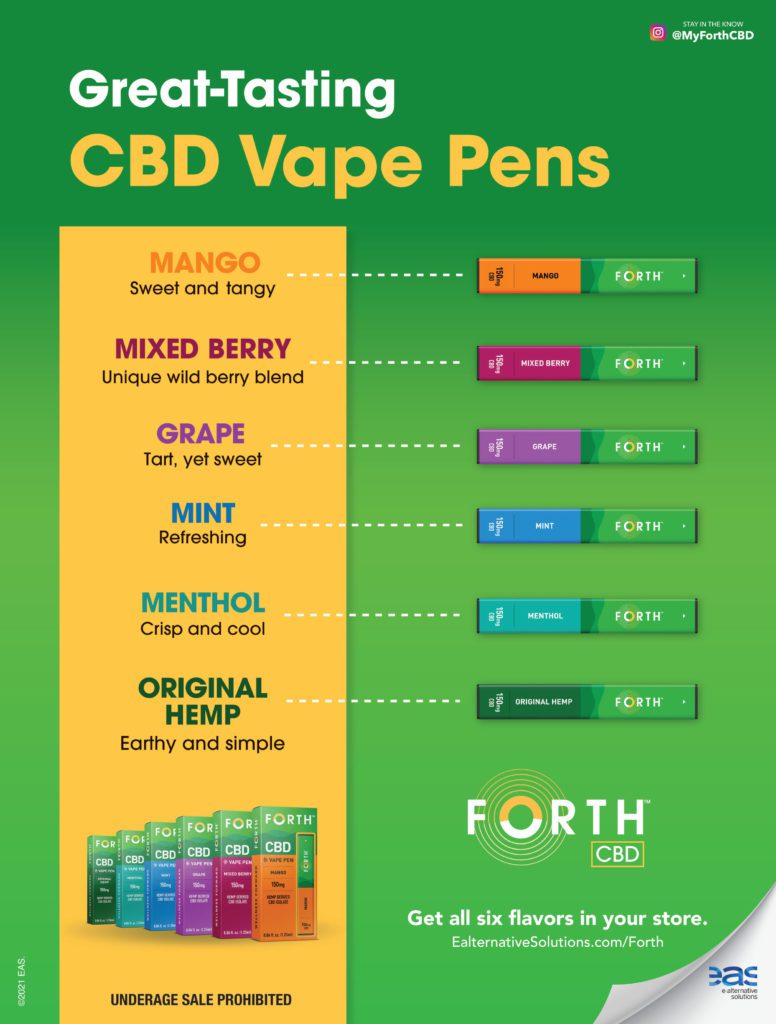Unintended Consequences
- Retail This Issue
- March 1, 2022
- 16 minutes read
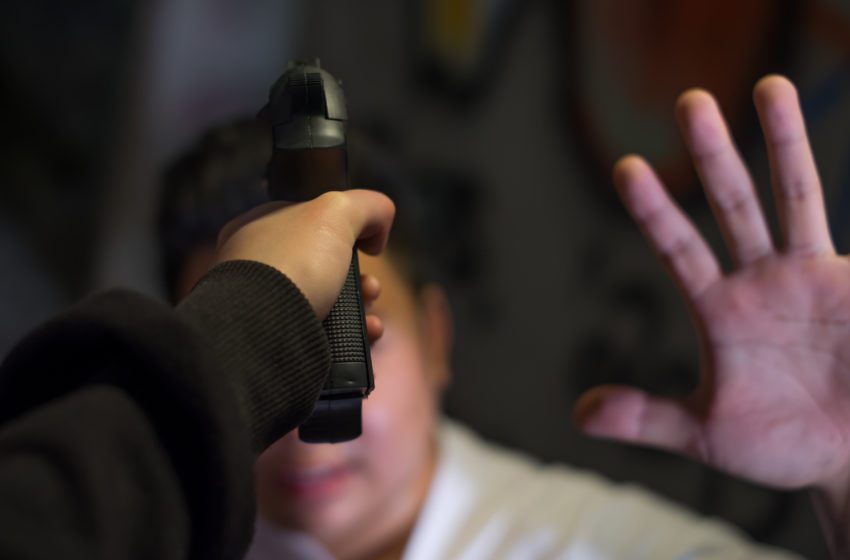
Credit: Kaisaya
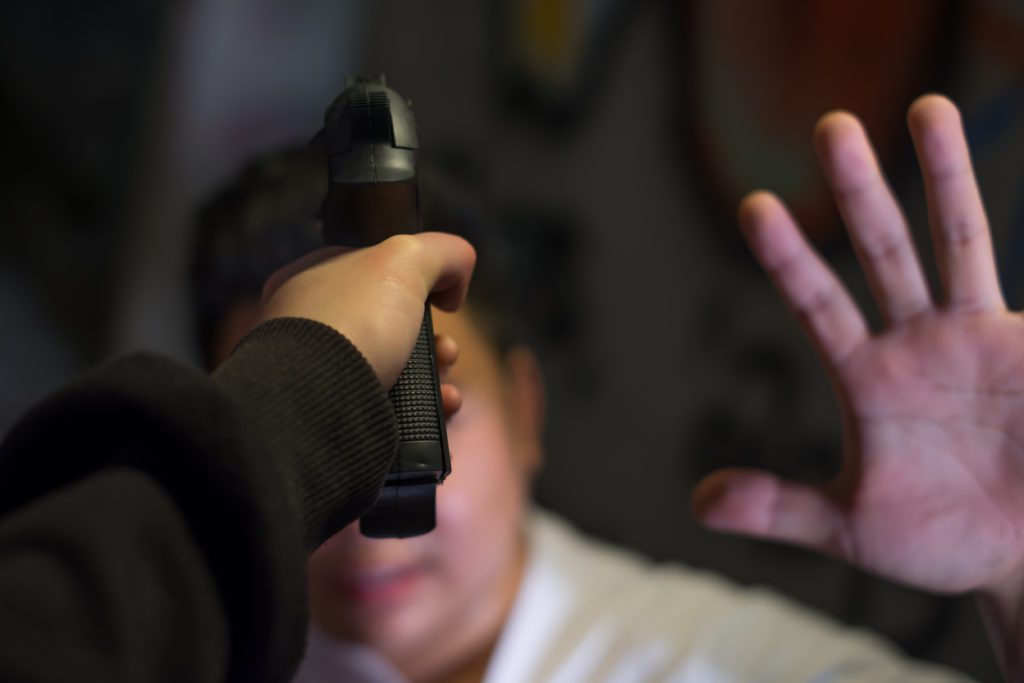
The number of crimes committed at specialty retail outlets has grown dramatically over the past few years.
By Timothy S. Donahue
Every year, hundreds if not thousands of cannabis dispensaries, vape shops and tobacco outlets are robbed or burglarized in the U.S. On July 10, in Lincoln, Nebraska, between 2 a.m. and 5 a.m., the police department responded to alarms at two vape shops where officers found shattered storefront glass at both locations. The thieves targeted CBD (cannabidiol) and Delta-8 THC (tetrahydrocannabinol) products. The pair of break-ins happened two days after another similar burglary, totaling three in as many days. The businesses lost tens of thousands of dollars in merchandise.
Timothy Goodman, a manager at the Lincoln Vapor location, said that break-in was just the latest in a string of six incidents in approximately the last two years, according to news reports. Goodman, who has worked at Lincoln Vapor for nearly four years, said it’s his understanding that every break-in can be linked back to the same group.
The burglars stole $2,000–$3,000 worth of merchandise in May 2021 and have lifted around $16,000 in products from the business through the last year and a half, according to Goodman. Most products were hardware and cannabis products, such as CBD and Delta-8 THC. “It’s frustrating beyond belief,” he said. “I wake up most nights in the middle of the night and check the cameras to make sure nobody got in.”
The rise in vape shop crimes may be an unintended consequence of recent regulatory actions, such as tax increases, flavor bans and raising the age to purchase vaping and tobacco products to 21, according to many industry experts. Richard Marianos, a senior law enforcement consultant who has served more than 27 years at the U.S. Bureau of Alcohol, Tobacco, Firearms and Explosives and who is now a consultant and adjunct lecturer at Georgetown University, says crime is often an unintended and overlooked consequence of regulatory constraints on the marketplace that encourage the growth of black markets.
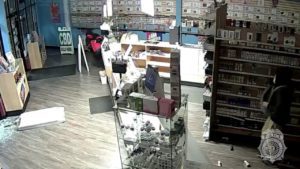
Marianos said that taxes and flavor bans bring prohibition, and prohibition brings crime. “These regulatory actions mean a dramatic increase in street sales to kids, and that is what we have seen all over the United States,” said Marianos. “If you have any form of tobacco harm reduction in your state, just throw that completely out the window [if you are going to implement flavor bans and raise taxes exorbitantly] because it forces young adults and people who can’t afford these products into a growing black market. In terms of law enforcement, the issue is that there has been 150 percent increase in smash-and-grabs because of the difficulty of purchasing these products.”
Sam Salaymeh, president and CEO of AMV Holdings, parent to a chain of 113 Kure CBD & Vape shops across the U.S., said that his stores have seen a major increase in crime over the past two years. During Covid-19 lockdowns in 2020 through early 2021, AMV stores had over 20 burglaries combined. “There is a myriad of stories that come with these break-ins, but the main theme is criminals are trying to get to high-value items that are small in size—and that would be the CBD/cannabis products … etc.,” explains Salaymeh. “This is happening more and more across the country.”
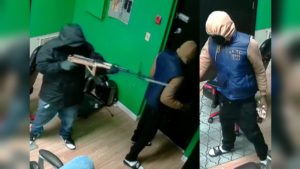
During a one-hour period on Dec. 20, five separate retail locations—three vape shops and two tobacco/vape outlets—suffered a string of robberies by three men wearing masks that crossed the Southeast region of Los Angeles County. A shop owner said the criminals pretended to be customers when one pulled a gun and demanded money while two others snatched merchandise from the store’s shelves, according to news reports.
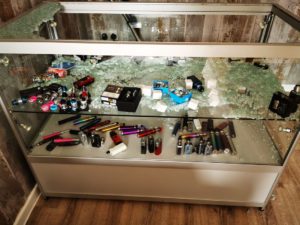
“We now have organized crews that go out and hit multiple stores like convenience stores, gas stations, vape shops in a single night or a weekend … they don’t go for cash registers; they want the tobacco products because they can sell it on the street cheaper than what it’s being sold for with these high taxes and these prohibitions,” says Marianos. “They’re making a fortune in the black market the same way the dope dealers are selling cocaine and heroin because the taxes on vaping and tobacco products are going through the roof.”
Crimes of convenience
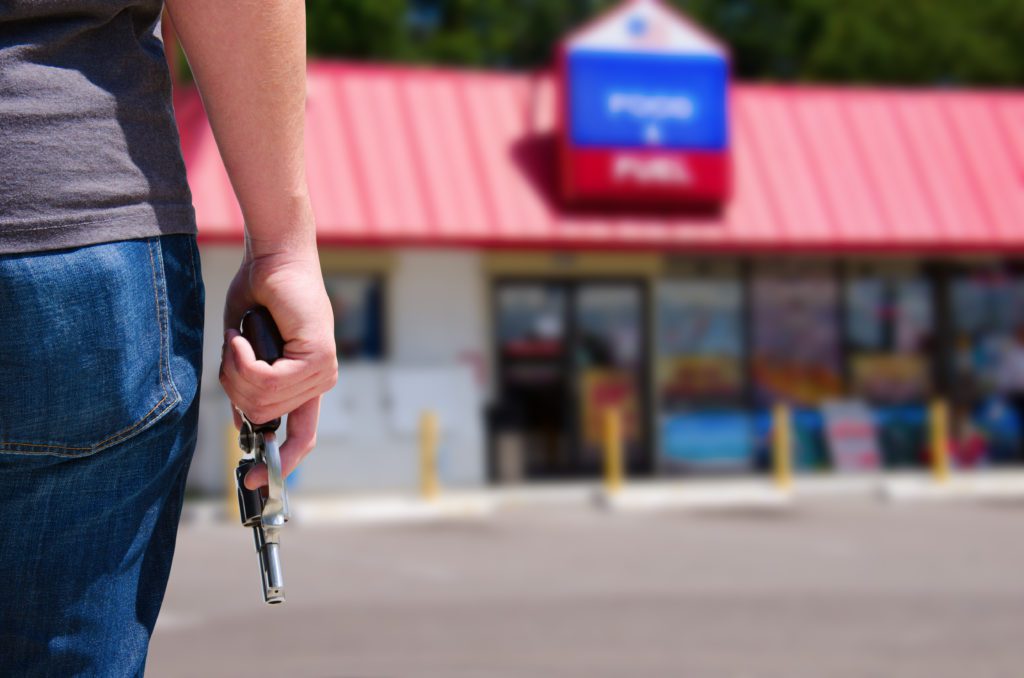
In 2020, there were 102,677 robbery incidents and 102,677 offenses reported in the U.S. by 9,991 law enforcement agencies that submitted National Incident-Based Reporting System (NIBRS) data. Nearly 25 percent of those incidents were committed at convenience stores (13,721), gas stations (7,006) and specialty stores, where vape shops are lumped into (5,372) combined. If criminals are looking for quick cash, then robbing convenience stores or small specialty retail shops is one of the best ways to do it, according to the FBI.
John Cavanaugh, owner of California-based Vaping Industries, says that thieves have broken into his stores numerous times. Typically, thieves try to take what’s immediately available. “They broke in after hours … broke the glass, popped open the register, grabbed the cash, broke into my office, got the petty cash and then rolled out,” he said. “I think we are starting to see more robberies than burglaries lately, and I think that it’s an easier target to hit a vape shop or a smoke shop with guns because the layout is small, there’s only typically one or two employees and—especially with cannabis dispensaries—there’s a lot of cash on hand.”
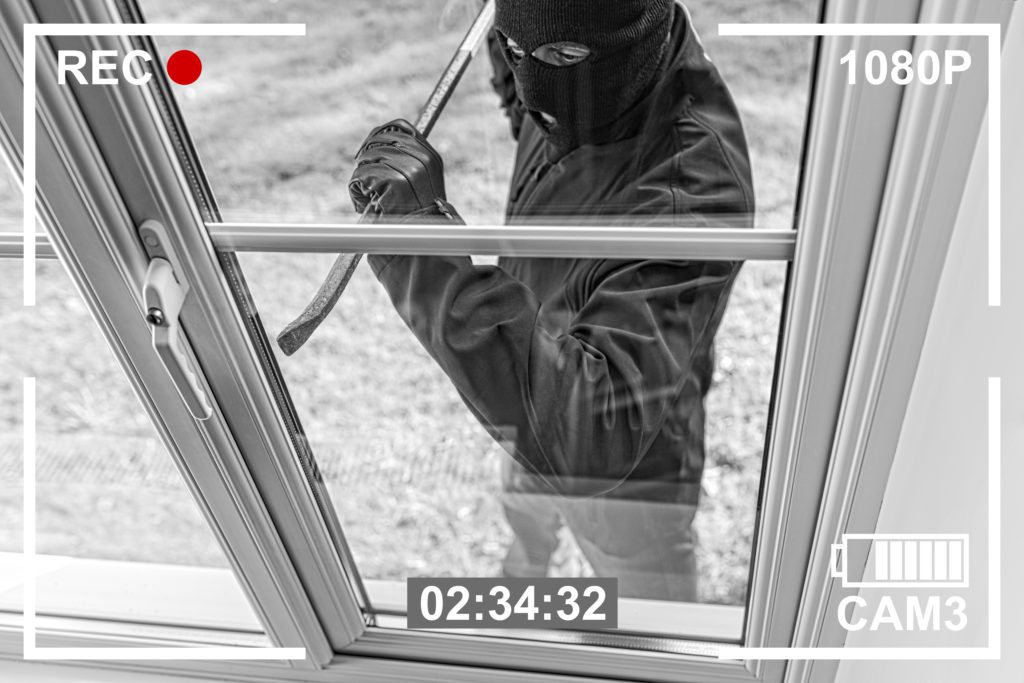
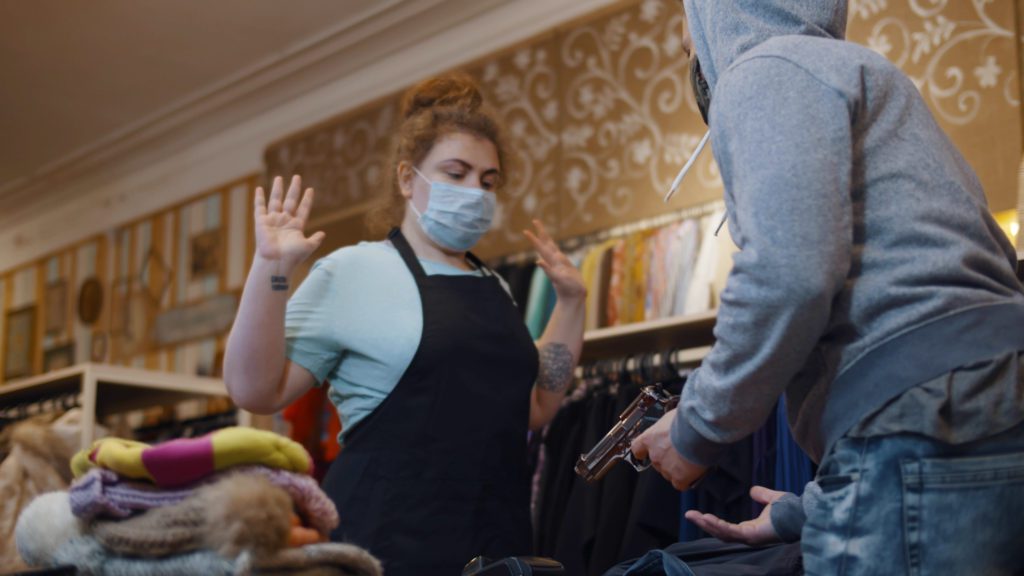
The terms “burglary” and “robbery” are not interchangeable.
They have meaningful differences.
Burglary involves a person illegally entering a building to commit a crime while inside.
Robbery is typically when someone takes something of value directly from another person using force or fear.
There is a far greater chance that someone committing a robbery will do so armed compared to burglaries, which typically occur after hours.
Convenience stores accounted for nearly 13 percent of all violent crimes suffered in 2020, and gas stations accounted for about 12 percent.
Across North America, crimes involving vapor, tobacco or cannabis shops are getting more violent. On Dec. 3, in Calgary, Canada, officials said a “number of people” entered Jerry’s Smoke and Vape just after 6:30 p.m. According to a police report, one of the suspects pointed a gun at the clerk, and the bandits made off with cash and merchandise.
On Sept. 12, in British Columbia, a suspect entered a vape shop alone armed with a shotgun. After threatening an employee, the suspect took an undisclosed amount of cash and product before escaping on foot. Over the weekend of May 29 to June 1, 2020, thieves burglarized several cannabis dispensaries, distribution centers and cultivation in Los Angeles, Oakland, San Francisco and other cities, stealing legal commercial cannabis products and cash. On Sept. 11, 2021, in Calgary, Canada, three masked men entered a dispensary armed, held off staff and got away with a quantity of cannabis products.
Cavanaugh said robberies are more common at cannabis dispensaries than vape shops because cannabis dispensaries have a lot of cash on hand, especially in the U.S. where very few banks will work with marijuana businesses. There are also numerous illegal cannabis dispensaries, which perpetrators know are less likely to notify law enforcement.
“Before all of this started happening over the last few years, I didn’t really believe in upping my security. Now, I have to make sure that there are panic buttons, that my staff are properly trained for when somebody comes in with guns blazing,” he says. “They need to know to just give it all up. Give them the cash and whatever they want. It’s OK. It isn’t worth your life. I’m also now spending extra money for high-end security cameras and security systems. It’s frustrating.”
Crime prevention

According to Marianos, there are several reasons why thieves target convenience stores and gas stations and now vape shops and dispensaries: operating hours and low numbers of staff on site, and these types of stores have smaller layouts, so it’s easier to find the expensive/high demand products and there is the potential for large amounts of cash on-site.
“You don’t want it to make product accessible where somebody can just take a trash can, throw it through the window and get into your shop and take all your stuff,” says Marianos. “More cameras, limiting the amount of people that are coming in like they do at jewelry stores—these businesses need a similar model that retailers with high-end products have. In some higher crime areas, you may even have to hire a security guard.”
Vandalism, from smash-and-grab types of crimes, has occurred so often at AMV stores in recent years that Salaymeh says he has a toolkit in his garage ready to go at a moment’s notice with everything needed to board up a store. He says he involuntarily became an expert at it. Salaymeh says that while it is rare for AMV stores to alter operating hours, it is a tactic they have used in the past. He says that having at least two staff members at all times in some locations, installing security cameras and other security measures are the primary tools store owners have in their arsenal to help deter crime.
“Security cameras help us at least get the story behind what happened and potentially pictures of the thieves. We also try to limit the access potential thieves have to valuable product … and we’ve tried to keep the lights on after hours so that people can actually see that these products aren’t lying around or in display cases,” he says. “We leave the register drawer open so that people, when they walk up, they see there’s no cash.”
Another unintended consequence of overzealous taxation and regulation is the impact it has on local law enforcement, according to Marianos. He says enacting some of these rules are, in effect, giving police more work to do in terms of harassment violations that have no teeth instead of fighting real crime.

“Instead of being able to work on what they should be working on—to serve and protect—are we going to be calling the police because someone is vaping a flavor?” he asks. “What is law enforcement going to do with all this nonsense? What are they going to charge the guy with? What is the crime? Do you know what I mean? It becomes an hour and a half just sitting around trying to figure out what we’re going to do here.”
During his interview with Vapor Voice, Salaymeh’s phone rang. It was the security firm ADT. One of the Kure stores had an alarm going off. He said it happens multiple times a week. There is insurance available for specialty shops, but both Cavanaugh and Salaymeh say it is expensive. The deductible is often higher than the amount of damage suffered during a crime. Both say they rarely, if ever, claim any damages with their insurance companies.
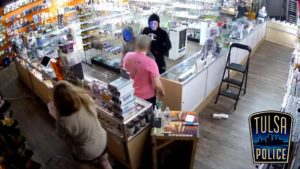
Another overlooked result of rising crimes in these specialty sectors is the impact on the economy and the lives of employees. Cavanaugh said that crime has forced him to shutter two stores, and he now struggles to keep the doors open in his remaining location. Increases in crime, overregulation and misinformation concerning the health and safety of vaping, and the causes (illegal THC vaping products) of e-cigarette or vaping use-associated lung injury have been too much to bear.
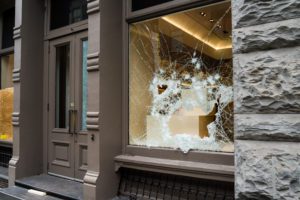
“We are doing our best to deal with the reality of today’s vaping industry,” Cavanaugh said. “I want to keep my doors open, and people depend on us; that’s important.”
Salaymeh says he had to close some stores during the Covid-19 pandemic, some of which were temporary. The closures weren’t all crime-related, he explains, but most of them were. There was a period when stores were not allowed to be open, so burglaries were happening, and stores couldn’t sell anything to try to recover losses. “We’re trying to keep people employed. The height of the pandemic was a very, very, very difficult time for our company and many companies like us. The primary victims of these senseless crimes are the people who don’t have a job to go back to because I shut down 18 stores during that time,” he says. “Think about that.”
